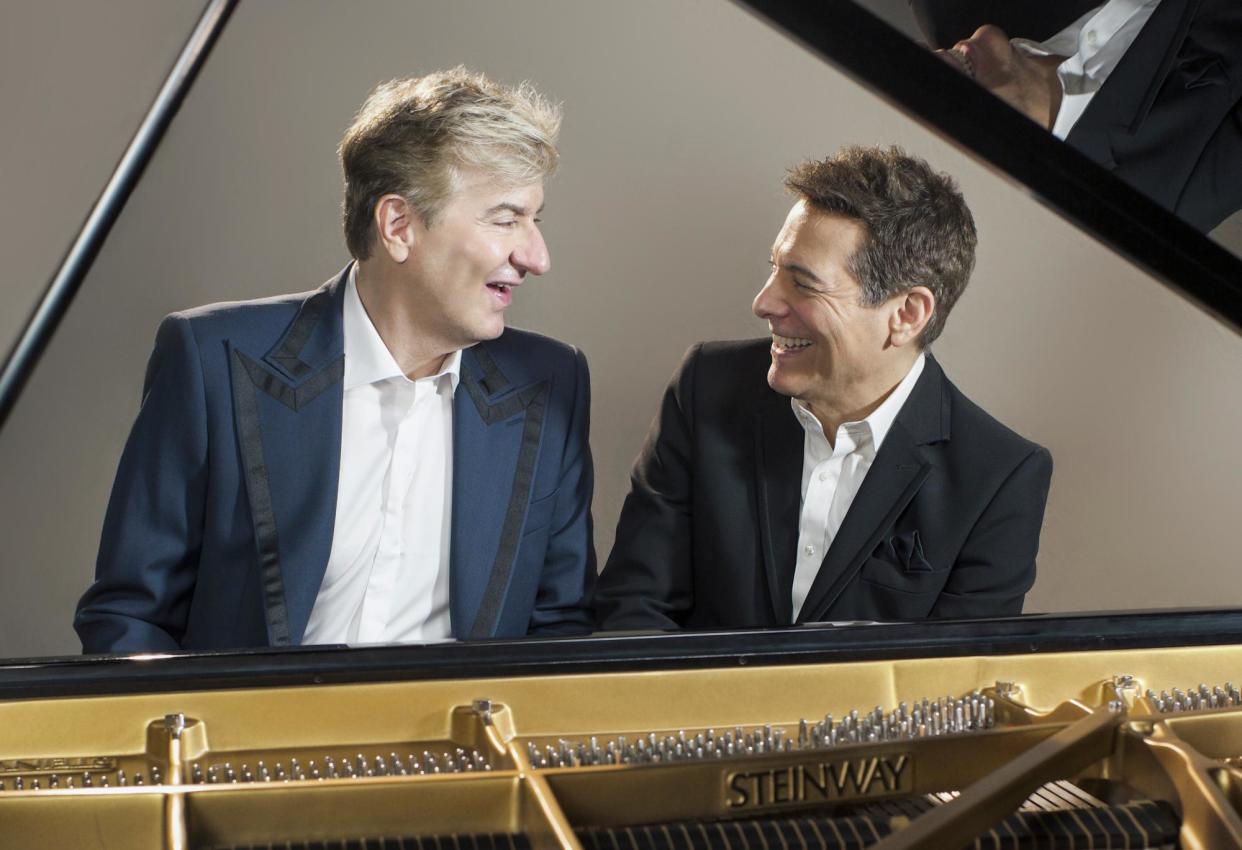Classical home listening: Thibaudet & Feinstein: Gershwin Rhapsody; Duruflé Requiem

• Prompted by the centenary (last week) of George Gershwin’s Rhapsody in Blue, two pianists from different traditions, Jean-Yves Thibaudet, predominantly a classical performer with a flair for jazz, and Michael Feinstein, known for his American songbook expertise, have collaborated on Gershwin Rhapsody (Decca), a homage to the composer and his most famous concert work. Variously for two pianos, piano solo or piano and voice (with Feinstein adding vocals on four tracks), the album includes two world premiere recordings, but most of the tracks are Gershwin mainstays such as Someone to Watch Over Me, I Got Rhythm, They Can’t Take That Away from Me, Fascinating Rhythm. They show off Feinstein’s improvisational skills and Thibaudet’s concert-pianist virtuosity, in arrangements by Earl Wild, Tedd Firth and Feinstein himself. Two brief medleys on the Rhapsody just about justify the album’s title but no one should mind. The playing is toe-tapping, witty and irresistible.
• During a long career, the French organist-composer Maurice Duruflé (1902-86) was a towering figure in the specialist world of French organ music, but his much-loved Requiem, Op 9 has given his name wider resonance. Between 1947 and 1961 he made three versions of this choral work for different forces. For an atmospheric new release on Hyperion, recorded in the church of Saint-Eustache, Paris, with the mixed-voice Choir of Trinity College Cambridge, conductor Stephen Layton has chosen the second (1948), with organ only (excepting the Pie Jesu, with cello solo). Harrison Cole, a recent Trinity organ scholar, deftly exploits the rich colours of the Parisian organ – one of the largest in France – its great reverberations conjuring the candlelit spiritualism in which Duruflé was steeped. The accompanying Four Lenten Motets for unaccompanied voices by Francis Poulenc (1899-1963) – first sung on Good Friday 1939 – are superbly sung. As in the Duruflé, dynamics are precisely observed by this expertly drilled choir.
• Vaughan Williams, Peter Maxwell Davies, Vangelis and Tanya Ekanyanka have all written music inspired by the Earth’s southernmost and least populated continent. All feature, with extracts from writers, in Words and Music: Antarctica – from Shackleton to Happy Feet, Radio 3 tomorrow, 5.30pm/BBC Sounds.

 Yahoo News
Yahoo News 
